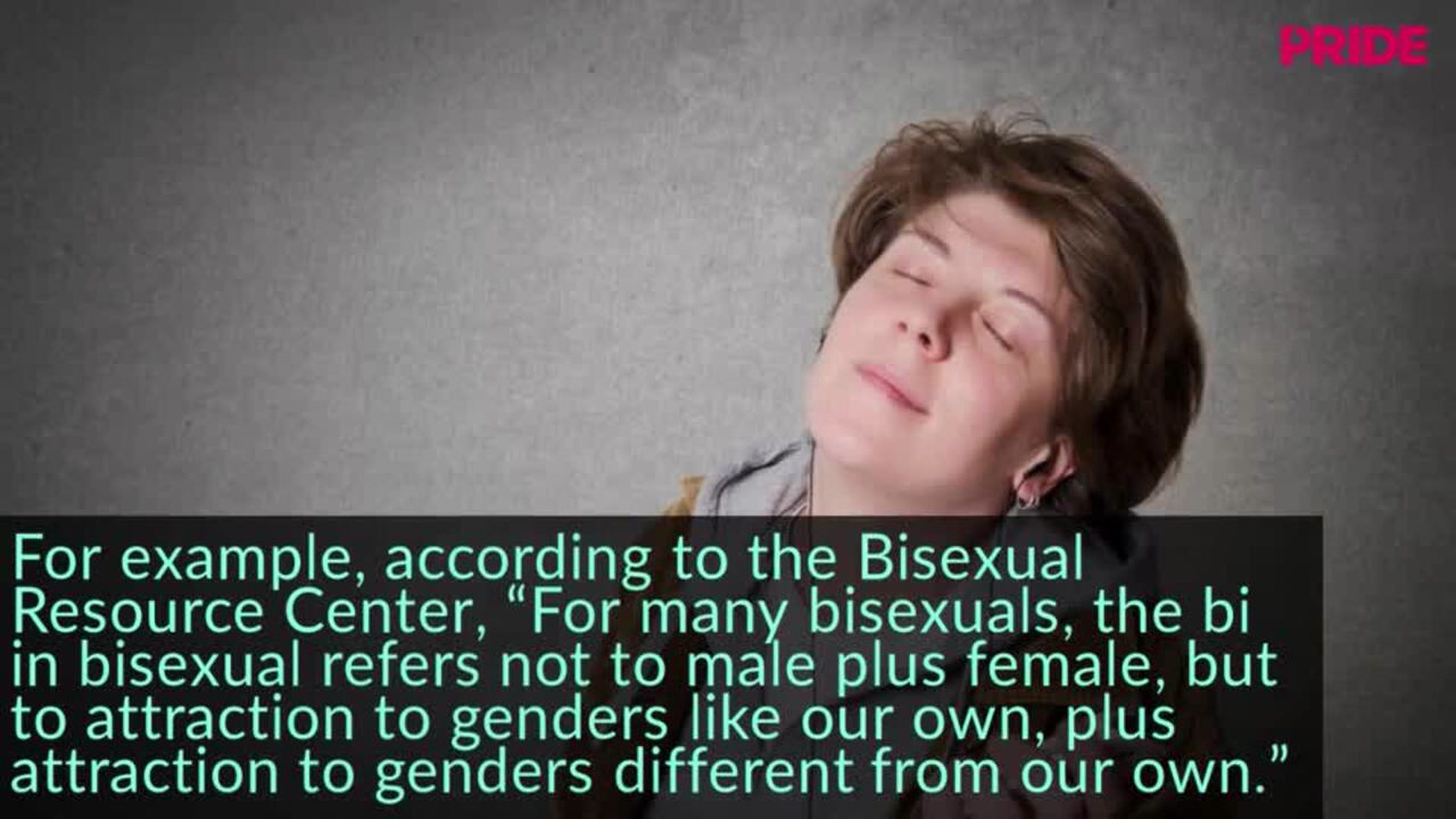It may seem obvious. Bi means "two" and therefore "bisexual" must reference two genders: man, and woman. Right? This is a tricky topic for me, in particular, because I identify as a non-binary trans person and understand that some descriptions of bisexuality don't include me. But as I did more research, I realized maybe the term is deeper and more queer than is widely understood.
Like many people, my introduction to the term bisexual was pretty binary. Like Webster says,
Sexually attracted to both men and women
or
of, relating to, or characterized by a tendency to direct sexual desire toward both sexes
Because of definitions like this, my partner, who once identified as a bisexual woman, began calling herself pansexual or queer so as not to be exclusionary. And she's not alone, a lot of queer people have found different ways to identify in attempts to be more inclusive to all genders.
The queer movement, however, has been trying to popularize a broader understanding of the term for quite some time now. According to Bisexual Resource Center:
For many bisexuals, the "bi" in "bisexual" refers not to male plus female, but to attraction to genders like our own, plus attraction to genders different from our own.
Still, the Webster definition is what the mainstream reads. Few people, even within the queer and LGBT communities, know there are other ways of understanding bisexuality. Genderqueer, bisexual advocate and author of Bi: Notes for a Bisexual Revolution, Shiri Eisner, wrote,
"Despite awareness and declarations which encourage trans/genderqueer inclusion, the mainstream bi movement has long been suffering from several problems around transphobia and cissexism, which remain largely unaddressed."
Eisner stresses that just because there's a dominant understanding of the term, doesn't mean bisexual has to mean the same thing for everyone.
Everyday Feminism broke down the transphobic claim in an article called "9 Lies People Tell You When You Come Out as Bisexual—And How to Heal From Them":
"People define their bisexuality in different ways. For some, it means attraction to two or more genders...Some bisexual people are transphobic, just like some gay and straight people are. But that’s because our society upholds being cisgender as the norm."
Limited attraction to only cis men and women isn't innately transphobic. I personally don't think it's fair to immediately call someone's sexual interests discriminatory because attraction is complex and the reasoning behind someone's interests aren't always so cut and dry. However, bisexual people who are interested in only cis people are definitely playing into a cissexist standard and ideal, whether they mean to or not.
Unlike early understandings of bisexuality, there are now several definitions, some trans-friendly and others not. The most recited definition might still be binary, but this is no different from narratives for trans people in mainstream media: the general understanding of being trans is that someone can be a trans man or trans woman, but it's still not well known that non-binary genders even exist.
So basically, most of society has a lot of catching up to do.
It starts with people listening to those who identify as bisexual before assuming what it means to them. Our own definitions of bisexuality can evolve from a binary attraction to cis men and women, to a more queer, umbrella term that means attraction to more than one gender or all genders. Someone identifying as bi doesn't automatically communicate transphobia. In fact, there are many gender queer and non-binary people who identify as bi. Bisexuality is often misunderstood and even erased in the LGBT community, but hopefully, we're on a path to make the "B" in LGBT a little less silent.































































































































